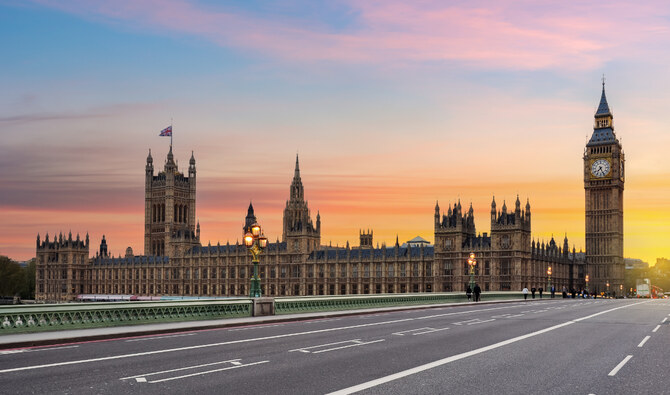LONDON: Top business leaders, researchers and politicians have called on the UK to bolster business and cultural ties with the Gulf.
The appeal came during a high-level discussion on evolving dynamics between the UK and the Gulf Cooperation Council at the House of Lords in London on Dec. 11.
An Emirati delegation led by Dr. Mohammed Al-Ali, CEO of Trends Advisory, discussed politics, counter-extremism and security within the UAE and wider Gulf.
The forum was moderated by Lady Olga Maitland, security expert and former MP, and featured comments from Al-Ali; Liam Fox, former UK defense minister; Syrian journalist Ghassan Ibrahim; former Conservative MP Daniel Kawczynski; Conservative Middle East Council Director Charlotte Leslie; and David Abrahams, former vice president of the Royal United Services Institute, among others.
Trade between the UK and the GCC has been valued at about $78 billion, according to this year’s figures. The two sides have held talks on a free trade agreement for a number of years.
Fox described Britain’s relationship with the Gulf bloc as “one of the most important trading relationships.”
He said: “I think there are reasons to be optimistic in the region. I think there are reasons to look at the building blocks that are there, to look at the quality of the leadership in the region and say, if we’ve ever had a chance to do something different, if we’ve ever had a chance to break away and not be prisoners of our history, that’s where we are now.”
But, Fox added: “History is littered with examples of when windows of opportunity opened and then closed before anyone had the willingness, the courage and the leadership to do it.
“I think we have a unique historic opportunity in maybe just the coming months, but the coming period, to help shape this part of the world, in a way that’s not impossible, and that’s the real challenge.”
Al-Ali hailed the “widespread presence” of Anglophone culture in the UAE and wider Gulf, including British educational institutions.
These “foster strong cultural ties and strengthen connections,” he added.
The Trends Advisory CEO called for the launch of a strategic council to push through the long-awaited UK-GCC free trade agreement.
Leslie hailed the Gulf’s experience in “bringing people together” in a world that is “ever more polarized.”
The UK could draw on Gulf experience developing counter-extremist organizations, she said.
Kawczynski, who took nine delegations to Riyadh during his time as an MP, singled out Saudi Arabia for particular praise.
“I’m very pleased that Keir Starmer, the prime minister, has been to Saudi Arabia this week … and I’m very pleased that parliamentarians across all political parties are starting to realize the importance of Saudi and the GCC,” he said.
The former MP added that he was “blown away” by the “sheer scale of Emirati investment” in London, and highlighted the importance of building economic interdependence between the UK and the Gulf.
Ibrahim, who heads the Global Arab Network, hailed Al-Ali’s visit as a “testament to the strength and importance of relations between the UAE and UK, as well as the rest of the GCC.”


























